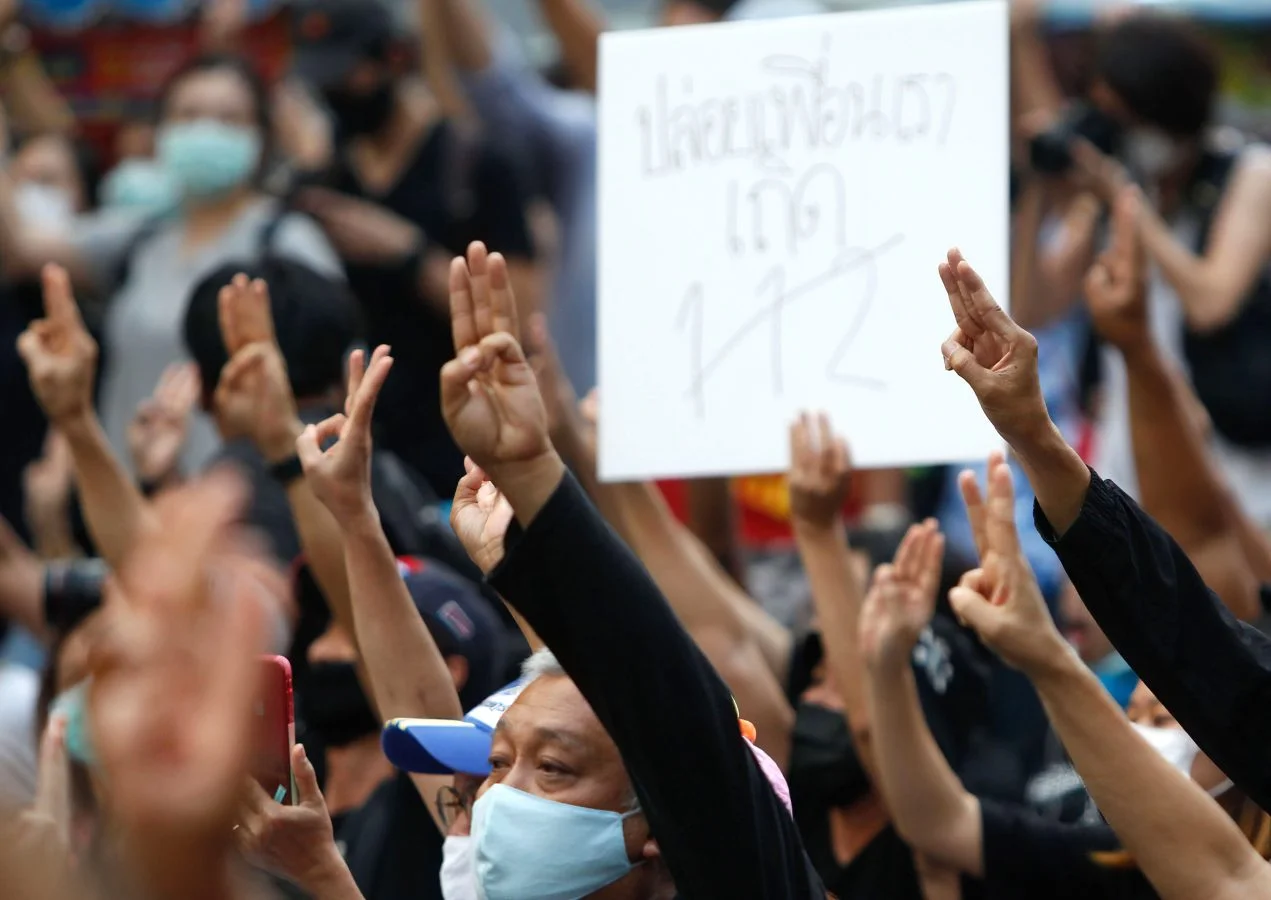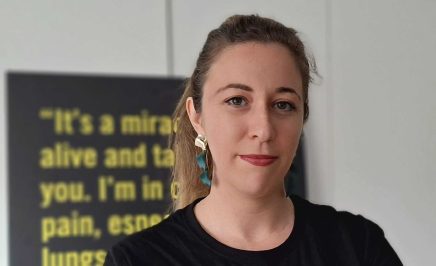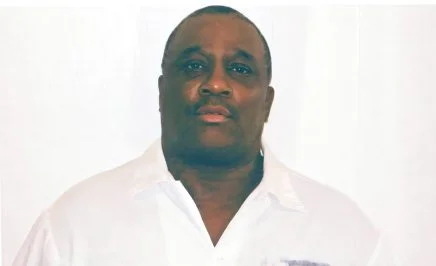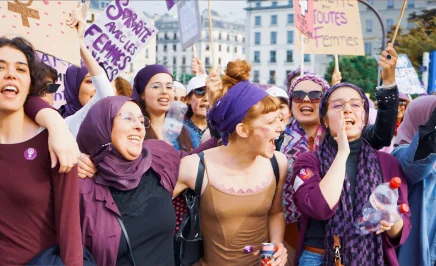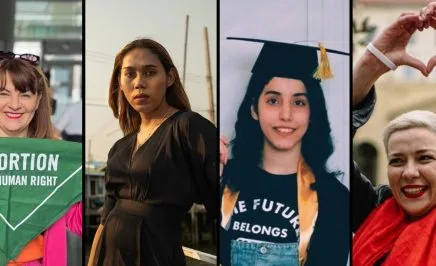Thai authorities have arrested, prosecuted, surveilled and intimidated child protesters for taking part in unprecedented mass demonstrations, Amnesty International said today, as it called for charges to be dropped and an end to any harassment discouraging children from joining protests.
Amnesty International’s new report, “We are Reclaiming Our Future,” is based on interviews with 30 child protesters and activists from across the country who took part in large-scale demonstrations between 2020 and 2022.
Compared to previous waves of protest in Thailand, an overwhelming number of participants were secondary school students under 18, who demanded educational, political, economic and social reforms to what they viewed as a paternalistic and rigidly conservative establishment. LGBTI and Indigenous children, and children from other ethnic minority groups also played a major role.
To date, nearly 300 under-18s have faced criminal charges, with some at risk of years in prison after being accused of sedition or insulting the monarchy, the first time that lèse majesté cases were known to have been brought against children in Thailand. The majority were accused of violating rules around mass public gatherings set out in a pandemic-related Emergency Decree that has since been lifted.
“Children with their whole lives ahead of them now face severe repercussions merely for participating in peaceful protests,” said Chanatip Tatiyakaroonwong, Amnesty International’s Thailand Researcher. “Thailand has a legal obligation to guarantee children’s right to freedom of peaceful assembly, but instead, exercising that right has come at a steep cost for protesters, who are potentially facing decades behind bars.”
Harmful tactics
Amnesty International documented a variety of tactics used to suppress the right to protest. Authorities routinely monitored or surveilled pro-democracy child protesters; directly intimidated children from ethnic minority groups for taking part in public assemblies; and asked unnecessary and invasive questions during background checks, such as whether the individual had relationships with someone of the same sex.
Chompoo*, a Bangkok-based 13-year-old child protester, told Amnesty International that she has been followed around by authorities since she started her activism in March 2022. Similarly, a 16-year-old LGBTI activist was trailed by authorities to his house and school, which affected his mental health with panic attacks, insomnia and other stress brought on by the continuous surveillance.
In some cases, authorities misused official powers under the Child Protection Act to wrongly prevent children from taking part in protests. Anna, a Bangkok-based student activist who advocates for educational reforms, said she and her friends were physically dragged out of a restaurant by police and officials from the Ministry of Social Development and Human Security, the main agency in charge of child protection, because authorities feared they were going to stage a protest at Democracy Monument as members of the royal family were due to travel past the area.
Amnesty International also documented authorities putting pressure on parents to discourage or prevent children from participating in protests. This provoked family tensions which, in two cases documented by Amnesty International, resulted in domestic violence against child protesters.
“When my family found out about my involvement in the protest movement, we started arguing a lot,” said Satapat, who took part in pro-democracy protests in 2020 as a 17-year-old high school student in the southern city of Pattani. “Then my parents started using physical violence and pressuring me by confiscating my daily allowance and mobile phone. I had to run away from home and went to live with my friend.”
“In addition to charges, some child protesters risk facing the added penalty of being disowned or abused by their own parents, due to the pressure put on them by authorities,” Amnesty International’s Tatiyakaroonwong said.
Hostile environment
Amnesty International has closely assessed safety conditions at protests since 2020. These concerns heightened in 2021 after increased police crackdowns and escalating violence at protest locations.
Three young protesters, aged 14, 15, and 16 at the time, were shot with firearms – allegedly by members of the public – outside Din Daeng Police Station in Bangkok on August 16, 2021.
One of them, 15-year-old Warit Somnoi, was shot in the neck, fell into a months-long coma, and then died from his injuries. Following the death, police repeatedly failed to provide evidence after many requests from the public prosecutor, causing a long delay in the investigation. The public prosecutor eventually indicted a member of the public with murder but no trial has yet taken place.
Amnesty International also spoke to a human rights lawyer who has represented several clients under the age of 18. The lawyer described ill-treatment by police officers, including the use of restraining tools and beatings during arrests and rubber bullets during protest crackdowns.
Authorities reportedly used cable ties to restrain a 12-year-old protester during a police crackdown on an anti-government protest near Bangkok’s Din Daeng Intersection on 13 July 2021. Another protester named Sainam, who was 17 at the time, said he was shot with rubber bullets at a protest in Bangkok.
“After I got shot, I tried to run away, but riot control police approached me from the front and the back. They grabbed me and made me fall down. Then I recalled they kicked me and used something hard – like a baton or gun – to hit me. They searched me all over my body, tied me up with cable ties and continued kicking me,” he said, adding that he only got to see a doctor the following morning upon release.
Amnesty International is calling for the Thai government to drop all criminal proceedings against peaceful child protesters; end all forms of intimidation and surveillance; and repeal or amend laws used to curb children’s right to protest to ensure they are in line with international human rights laws and standards.
“Whether entering university or applying for jobs, many child protesters are just embarking on the next phase of their lives. Our message to Thai authorities is simple: Stop holding them back and allow them to exercise their rights freely,” said Tatiyakaroonwong.
*Full names have been withheld for security reasons
